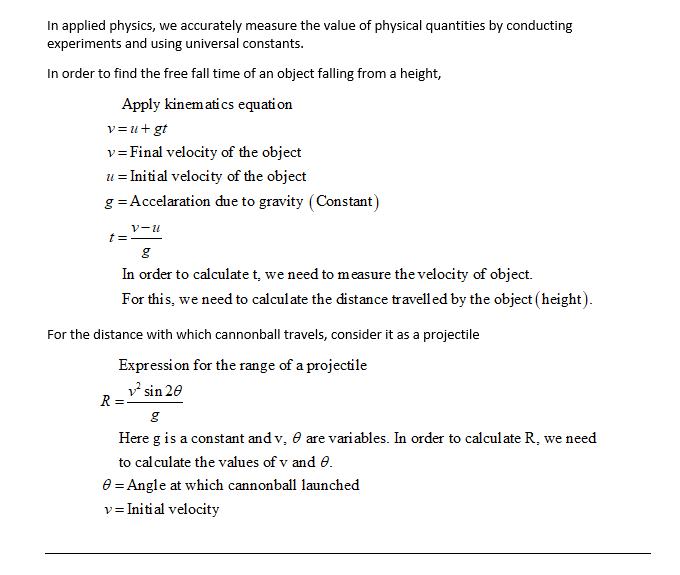Think about constructing a rational measurement system, as mentioned in the discussion of the metric system in Chapter 1 of your book, and the additional videos in Module 1. In devising this measurement system, you must choose two “universal constants” that you will use as the basis for your system (such as the speed of light and the mass of an electron, for example). Now, imagine that you want to conduct an experiment that will allow you to accurately measure a third quantity, using the two universal constants you selected, such as the free fall time of an object dropped from a building, or the length a cannonball travels when fired at an angle. Apply the scientific method to ask the question, “How far will the cannonball fly?” and use your measurement system to record the distance.
Part of the scientific method is the testing of your experiment by other physicists like you. Include the following in your analysis:
- Which difficulties would arise for them in confirming or denying the validity of your results?
- What are the control variables in your experiment?
- Which other measurements would you need to devise to monitor them?
Expert Answer


